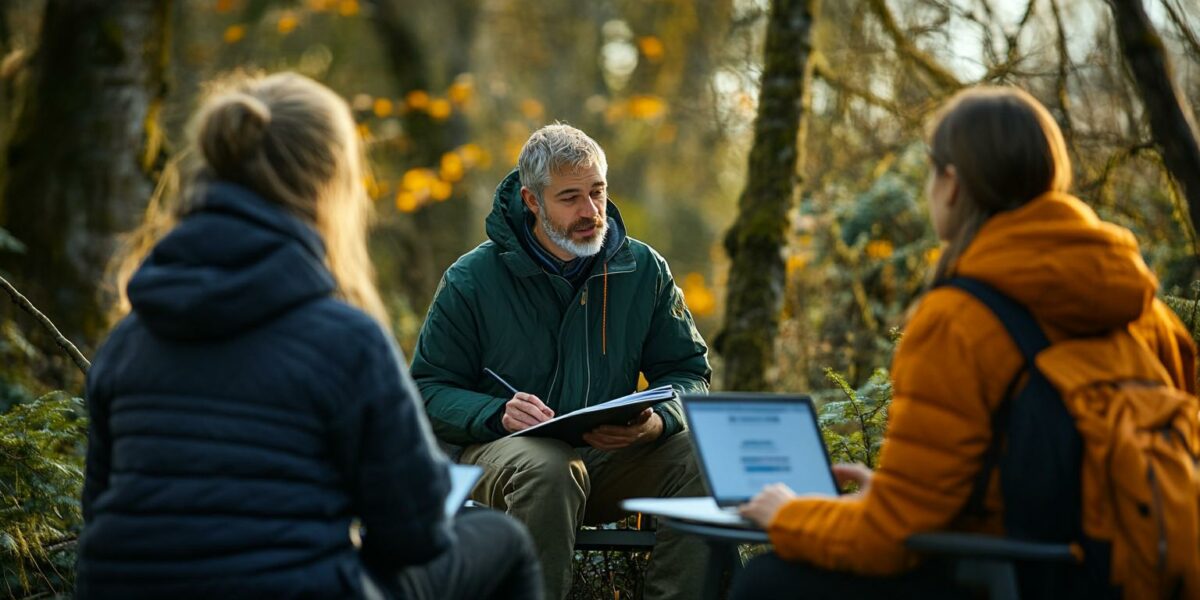Revolutionizing Climate Education
How do we equip students with the knowledge and tools to envision a hopeful future amidst the climate crisis? At McGill University, a novel course has emerged, combining environmental studies, biology, geoscience, and science communication to tackle this pressing question.
The Climate Crisis and Climate Actions course offers an interdisciplinary approach, emphasizing both individual and collective actions. This innovative curriculum aims to provide a “whole-person” understanding of the climate crisis.
Creating this course involved extensive consultation with researchers and educators across various fields. It reflects the multifaceted nature of the climate crisis.
Indigenous knowledge and pedagogy played a significant role in shaping the course. Consultations with Indigenous leaders and educators helped integrate these perspectives into the curriculum, emphasizing learning that is physical, emotional, spiritual, and intellectual.
Essential Principles for a New Era
The course’s design transcended traditional disciplinary boundaries, embracing a holistic approach inspired by Indigenous teachings. Weekly reflective journaling helps students engage on multiple levels, guided by teachings from Indigenous leaders.
Collaboration and diverse perspectives are central to the course. It features lectures from a wide range of disciplines, including Earth system sciences, political science, biology, and more. The integration of musical performances and poetry readings further enriches the learning experience.
Guest speakers, including climate solutions experts, Indigenous activists, and policy makers, share their expertise and experiences. This diverse array of voices helps students understand the global and local dimensions of the climate crisis.
Course materials include:
- IPCC sixth assessment report excerpts
- Writings by Potawatomi botanist Robin Wall Kimmerer
- Films by Indigenous Islanders
Holistic Learning and Personal Growth
Students participate in small workshops, fostering peer learning and collaboration on assignments. Towards the course’s end, they work together to propose climate actions on campus, with opportunities for funding and implementation.
Encouraging students to bring their whole selves—skills, passions, and experiences—creates a strong community and supports those experiencing climate anxiety or grief. This approach helps students find their place in the climate crisis and identify actionable contributions.
Interactive activities, such as those inspired by marine biologist Ayana Elizabeth Johnson’s climate action Venn diagram, promote authentic connections and brainstorm possible actions. Students declare a doable next step to take forward.
Academics often speak from formal expertise, but incorporating personal elements can lead to more comprehensive solutions. This approach allows for a deeper engagement with multidisciplinary materials and a better understanding of individual roles in the climate crisis.
Starting from Personal Engagement
The climate crisis is complex, daunting, and multifaceted, making it challenging to address. The course recognizes multiple valid approaches and emphasizes the importance of discussing the crisis, as highlighted by climate scientist Katherine Hayhoe.
Students from diverse disciplines and backgrounds join the course. They begin by visualizing and sharing their personal climate journeys as a “River of Experience,” representing influential experiences, people, and events.
This exercise acknowledges the diverse starting points of each student and helps them envision their learning path during and after the course.
While the course is designed for undergraduates, its principles are applicable beyond academia. Instructors and climate experts have found new hope and community by applying these principles in their own lives.



charlestempest7
Loving the idea of musical performances in a science course. Does it really help with learning?
JohnNebulae
Are there any online versions of the course for those who can’t attend in person?
CocoNova
McGill is setting the bar high! How do you handle integrating so many different disciplines?
aubrey
Do the students actually get to meet Indigenous leaders and activists?
aria
Reflective journaling sounds interesting, but how is it graded?
Asher
This is the kind of education we need in the face of a climate crisis. When will other universities follow suit?
Leah
Are there any similar programs available for high school students?
Olive
Combining science and Indigenous wisdom is such a powerful approach. Kudos to McGill for this initiative!
camila5
Wow, this course sounds incredible! How can non-McGill students access these resources? 🌍